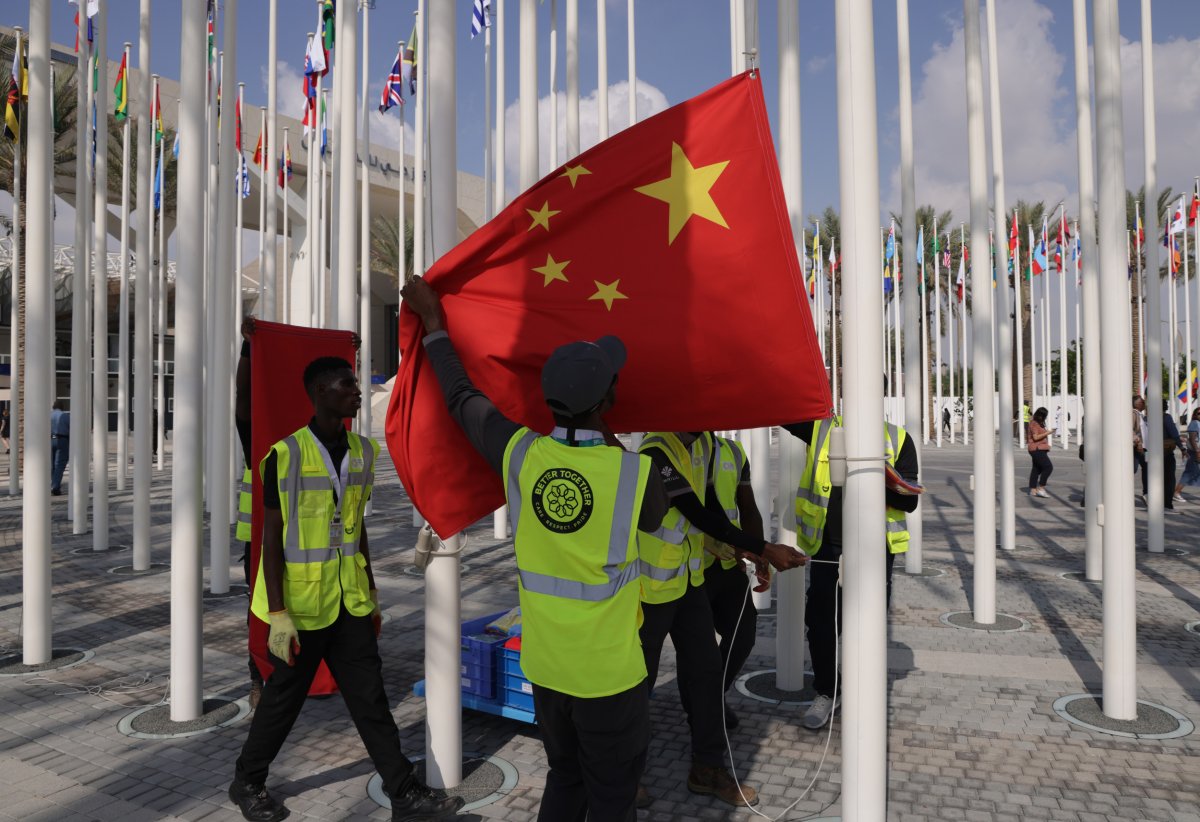The United States and China issued a joint statement on climate crisis cooperation prior to the APEC summit last month, underscoring the importance of the topic. Leaders around the world who are concerned with climate change need to understand that the climate crisis is a human rights crisis, and it is more so when it includes China. While it is undeniable that China is the world's largest producer of renewable energy, dominating solar and wind technology, China's solar panels, electric vehicle (EV) batteries are made by forced labor. China's gross human rights violations should be addressed strongly at this week's World Climate Action Summit – COP 28, including Uyghur forced labor issues, still ongoing across China.
Advancing democracy and freedom and human rights around the globe is central to American diplomacy and foreign policy, and it is one of the seven pillars of Biden's foreign policy as well. Responsibility for addressing forced labor issues applies to national leaders, state governors, and other executive stakeholders because America has passed a specific law on China's forced labor practices. However, a look at the itinerary of California Governor Gavin Newsom's (D-CA) climate-focused visit to China reveals links to forced labor, despite his claims to have raised and discussed "human rights issues including . . . Xinjiang" with his Chinese counterparts during the trip.
But Newsom visited Jiangsu Gold Wind Science and Technology and signed a memorandum of understanding. The company is controlled by the Xinjiang Uyghur Autonomous Region (XUAR) government. Xinjiang Gold Wind provides direct financial support to assist the Xinjiang government's "poverty alleviation" forced labor scheme. Uyghur and other minorities in Xinjiang are forced to work against their will in factories across China.

Congress enacted the Uyghur Forced Labor Prevention Act (UFLPA) in June 2022 to ban the import of goods or services produced by forced labor created by Chinese government schemes. The schemes are thinly veiled genocidal efforts that target and abuse the human rights of Uyghurs and other ethnic groups. The Fact Sheet published by the U.S. State Department on forced labor in Xinjiang in 2021 describes the schemes: "In Xinjiang, the government is the trafficker...transferring many thousands of camp detainees elsewhere in Xinjiang and to other provinces throughout the country under the guise of a "poverty alleviation" program in which companies and local governments received subsidies for forcing them to labor in manufacturing."
Xinjiang Gold Wind stopped disclosing its "poverty alleviation" support on its annual report in 2021, the same year that Congress passedthe UFLPA. However, Xinjiang Gold Wind's linkage to Uyghur forced labor has continued to get public attention.
Wu Gang, the chairman of Xinjiang Gold Wind's board of directors, is the secretary of the Communist Party organization within the company and was a member of the Party's 20th National Congress—a role that is carefully chosen from among China's more than 96 million Party members.
Last year, China's Ministry of Foreign Affairs organized a Xinjiang tour for diplomats from 30 Islamic countries in Beijing that included a visit to Xinjiang Gold Wind. China's state-organized propaganda tours are aimed at covering up ongoing crimes against humanity and the genocide in the Uyghur region.
Chinese companies and technologies continue to pioneer green energy at the cost of human rights with strong government support that includes forced labor. Fewer than 30 Chinese entities have been put on the UFLPA Entity List since its implementation in June 2022. Compared to the scale and scope of Chinese businesses linked to forced labor, the UFLPA list needs to catch up. Tackling climate change is one of the Biden administration's main agendas, and Newsom tried to make a positive contribution with his climate-focused China trip. Unfortunately, his trip was a win for China's propaganda machine. The joint statement encourages and supports subnational cooperation on climate among states, provinces, and cities between the two countries. From now on, Newsom should utilize such state-level platforms to publicly support the UFLPA and ask his counterparts to recommend a clean wind energy business with no links to forced labor.
There should not be a tradeoff between human rights and climate change, and there is no conflict between climate cooperation and supporting the UFLPA. Conversations about forced labor and human rights should be an integral part of climate diplomacy, especially when engaging with China's dictator Xi Jinping and his genocidal regime.
Akram Keram is a native Uyghur and China analyst.
The views expressed in this article are the writer's own.
Uncommon Knowledge
Newsweek is committed to challenging conventional wisdom and finding connections in the search for common ground.
Newsweek is committed to challenging conventional wisdom and finding connections in the search for common ground.





